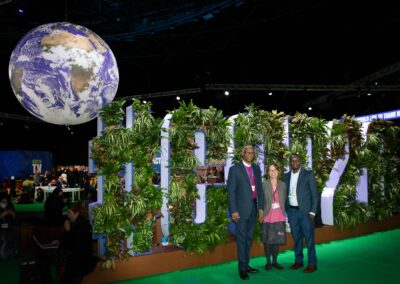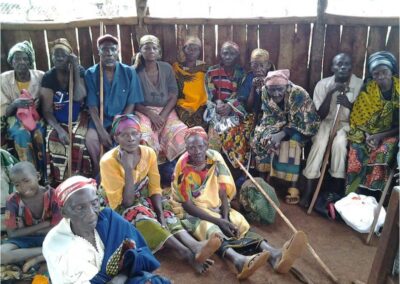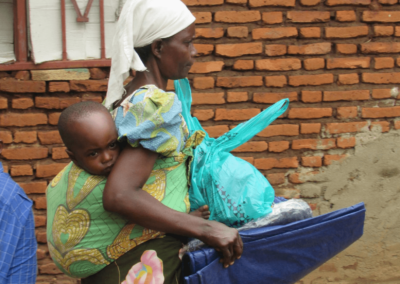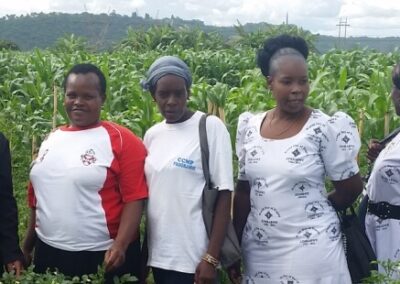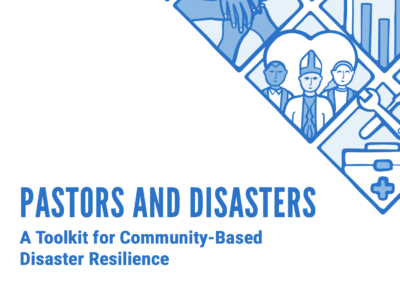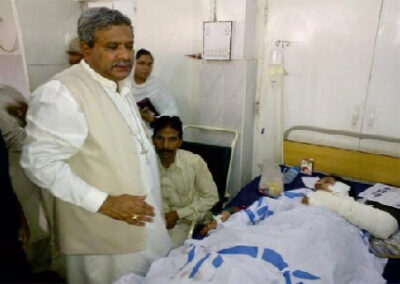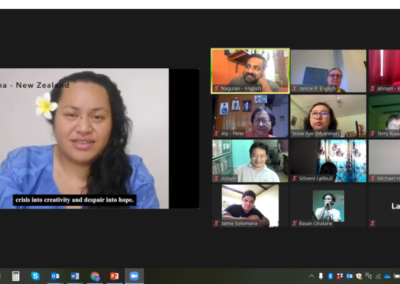Resilience and disaster response
Find out all about the Anglican Alliance’s disaster response and resilience work here.
Scroll down to the bottom of the page to find out about the Resilience Course, Partners in Resilience and Response, Pastors and Disasters, how the Anglican Alliance can help and much more.
Opposite: Disaster response and resilience workshop in the Caribbean convened by the Anglican Alliance and Episcopal Relief & Development. Image: Anglican Alliance / Janice Proud.
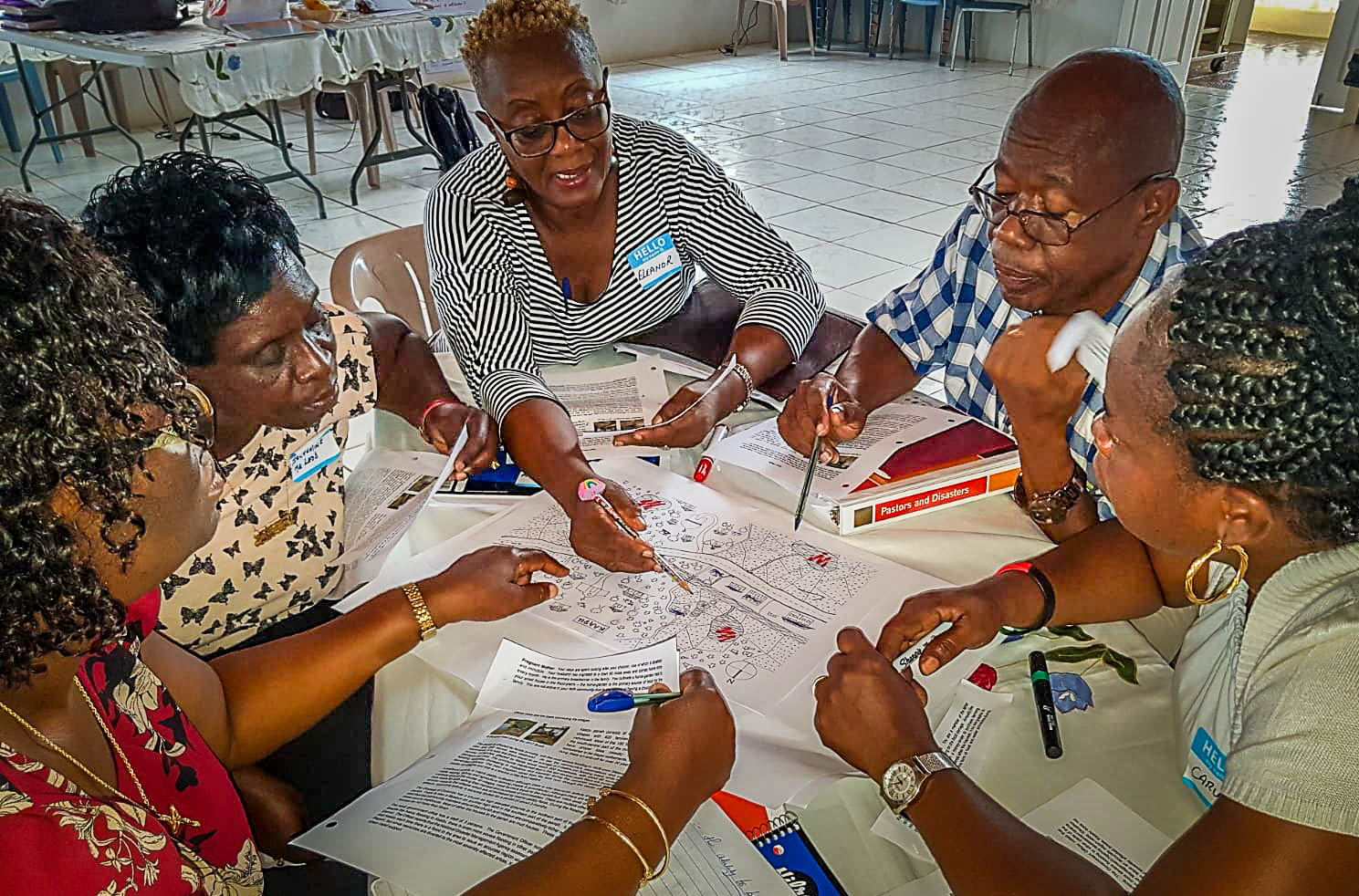
Disaster response
Churches are often first responders in a disaster, welcoming and caring for those affected. As integral parts of their communities, local churches can act fast, mobilising their own resources. They are there before external agencies arrive and long after they have left.
The Anglican Alliance serves to connect the local church with the worldwide Anglican family in times of disaster. When we hear of an emergency, we reach out to offer solidarity and support. We want no one to feel alone when going through a disaster.
We work closely with a committed group of agencies and diocesan companion links to connect for prayer and joint support so that the local church has a streamlined process for communication, preparing proposals and reporting. One of the principal reasons the Anglican Alliance was established was to provide such a convening platform.
Read more: examples of Anglican Alliance responses to disasters
Examples of how the Anglican Alliance has supported churches at times of disaster include:
Church bomb attacks in Lahore, Pakistan in 2015. After calling for prayer, the Anglican Alliance hosted a call where Bishop Irfan Jamil shared three capacity support priorities: security, culturally- sensitive trauma counselling and communications. Partners pledged support as well as continued prayer.
In early 2015 the provincial secretary shared his concern about an impending food security crisis in Tanzania. The Anglican Alliance alerted agencies, including the World Food Programme to this.
In 2017, Peru was badly affected by floods. Having reached out in solidarity and prayer, the Alliance coordinated support for a small proposal from partners that enabled the church to respond with food, cleaning materials and school books.
Cyclones brought devastation across Mozambique, Malawi and Zimbabwe in 2019. The Anglican Alliance coordinated partner support for the response in the three countries. The Alliance supported the Mothers’ Union to secure training in trauma counselling for the national churches, as the cyclone devastation came in addition to drought from climate change and conflict in Mozambique and political and economic crises in Zimbabwe.
In addition, Zimbabwe had the first Partners in Resilience and Response visit in Africa, providing support and important networking openings.
After hurricane Dorian devastated the islands of Abaco and Grand Bahama in 2019, the Anglican Alliance hosted a partner call, enabling Bishop Laish Boyd to share about its impact and the church’s response. Partners in North America raised significant support and accompanied the local church as it continued its immediate response and developed its recovery plans. The accompaniment included regular calls and a visit to help develop partnerships for the recovery response.
In 2014-16, Ebola spread through Guinea, Liberia and Sierra Leone. The epidemic proved hard to control, until the engagement of faith leaders in prevention messaging. The Anglican Alliance connected the local church with the global church for prayer and support through this time. Afterwards, it invited the bishops to share with partners their learning from the experience.
In 2019, a serious outbreak of Ebola began
in Eastern DR Congo. The Anglican Alliance was able to reach out to the bishops and health and development staff to share the learning about the important role of faith leaders in building trust in prevention messaging and hope for those affected as new treatments emerged. The Alliance supported the development “Faith in a time of Ebola”, a Bible based resource for churches to play their part in controlling the Ebola outbreak. The Alliance also supported ecumenical training in using the material .
In 2022, the Anglican Alliance invited agencies to calls about the global food crisis that was developing as a result of the Covid-19 pandemic, climate change and the impact of the war in Ukraine – with rising food prices due to shortages and increased oil and fertilizer prices. The Alliance was looking for examples of practical action that churches could promote to mitigate the impact of the crisis as well as opportunities for working with others on advocacy both within the church and to decision makers nationally and globally.
Tonga volcano eruption and tsunami, 2022. The Alliance called for prayer, while prepositioned emergency supplies allowed the local church to respond before external support could arrive. Anglican Missions, New Zealand, coordinated with the local church as Anglican partners offered support, ongoing recovery and sustainable livelihoods activities.
Resilience
In recent years, the number of disasters has increased significantly – and their frequency and magnitude are likely to increase further as the climate crisis worsens. There is urgent need to increase people’s capacity to anticipate, prepare for, and respond to disasters and to adapt to new realities – to build resilience.
Increasingly, the Anglican Alliance is promoting an asset-based resilience approach, working with agencies to help build the capacity of dioceses and provinces to prepare for and manage disasters and mitigate their impact.
Read more: what is resilience and why do we need it?
Throughout history and across the whole world, people have been impacted by disasters of different kinds and magnitudes. These range from pandemics, earthquakes and volcanic eruptions, to increasingly frequent climate-related events such as extreme storms, flooding and droughts
We cannot prevent such disasters, but we can increase our capacity to survive and come through them. We can learn practical disaster response skills – what to do when a disaster strikes our community. We can also build our communities’ ability to identify hazards, assess risks, anticipate threats, prepare for potential disasters and absorb their impacts. In short, we can increase resilience.
In this context, Resilience means the ability of a community or society exposed to hazards to resist, absorb, adjust to and recover from the effects of a hazard in a timely and efficient manner.
Resilient communities or organisations are those that are able to:
- plan and be organised,
- identify hazards and mitigate risks,
- identify and mitigate vulnerabilities and
- build capacities.
As a result, when they are exposed to hazards (potential disasters), they are more resilient. They are less impacted by disasters when they come.
Resilience is needed not only in times of acute emergencies but also more generally, to help churches, communities and individuals cope better with persistent challenges and difficult situations.
For example:
• Building resilience through developing sustainable livelihoods and diversifying crops enables communities to better withstand the impacts of climate change and reduces migration
- Building resilience through diversified livelihoods and savings groups enables individuals and communities to be less impacted by economic shocks and have social support
Resilience is often seen as a necessity only, or primarily, for vulnerable communities. However, the 2021 report from the Intergovernmental Panel on Climate Change (IPCC) makes it plain that no community will be unaffected by climate change. It is therefore essential that every community looks to increase its resilience, whether in richer or poorer nations. The pandemic also made this clear.
Building resilience is vital, but not enough. There are shocks that even the most resilient communities are unable to withstand. Building resilience is not meant to suggest that those most affected by disasters bear the sole or primary responsibility for dealing with them. Indeed, building resilience is not a substitute for other necessary and urgent action, particularly on the part of governments and financial institutions. The injustices that increase people’s vulnerability to disasters (such as poverty and inequality) and the risk of them happening (such as climate change) must be challenged and changed, not least by the wider church.
Find out more about our disaster response and resilience work through the links below…

